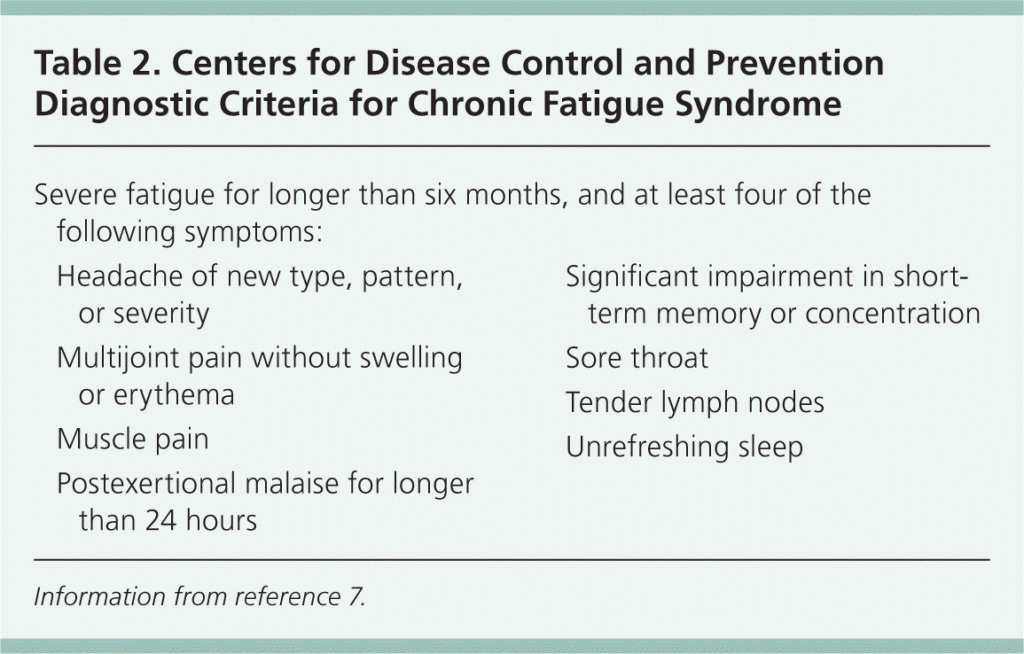Are you or someone you know struggling with Chronic Fatigue Syndrome (CFS)? If so, this article is here to provide you with valuable nursing considerations and management strategies to help navigate through the challenges of this condition. CFS can be a debilitating illness that affects individuals on a daily basis, impacting their physical, emotional, and cognitive well-being. However, with the right nursing support and management techniques, individuals with CFS can experience improved quality of life and better symptom management. Join us as we explore a range of nursing considerations and strategies that can make a significant difference in the lives of those with Chronic Fatigue Syndrome.

Diagnostic Criteria
Fulfilling the criteria for diagnosis
When assessing patients for Chronic Fatigue Syndrome (CFS), it is essential to consider the diagnostic criteria established by the Centers for Disease Control and Prevention (CDC). These criteria include the presence of unexplained fatigue lasting for at least six months, which is not alleviated by rest and results in a significant reduction in daily activities. Additionally, at least four of the following symptoms must be present: impaired memory or concentration, sore throat, tender lymph nodes, muscle pain, joint pain without swelling or redness, headaches, unrefreshing sleep, and post-exertional malaise lasting more than 24 hours. Fulfilling these diagnostic criteria is crucial in accurately identifying CFS and providing appropriate care.
Distinguishing CFS from other medical conditions
Distinguishing CFS from other medical conditions can be challenging due to the similarity of symptoms. However, a comprehensive patient history, physical examination, and psychological assessment can aid in the diagnostic process. It is crucial to rule out other potential causes of fatigue, such as thyroid dysfunction, sleep disorders, and autoimmune diseases. Collaboration with specialists and conducting additional diagnostic tests may be necessary to differentiate CFS from other medical conditions accurately.
Assessment and Evaluation
Comprehensive patient history
Taking a comprehensive patient history is vital in understanding the onset, duration, and progression of symptoms. It allows healthcare providers to identify any potential triggers or underlying causes of CFS, as well as any other medical conditions or medications that may be contributing to the fatigue. Collecting information about the patient’s medical history, social history, and psychological factors can provide valuable insights into developing a holistic care plan.
Physical examination
Conducting a thorough physical examination helps healthcare providers assess the patient’s overall health and identify any physical manifestations of CFS. This examination may involve assessing vital signs, examining lymph nodes for tenderness or swelling, evaluating muscle and joint pain, and checking for any abnormalities that may be associated with CFS. A careful and comprehensive physical examination can help healthcare providers gather objective data to support the diagnosis and guide the development of an individualized treatment plan.
Psychological assessment
A comprehensive psychological assessment is crucial in evaluating the impact of CFS on the patient’s mental well-being and identifying any coexisting psychological conditions. Conditions such as anxiety and depression are commonly associated with CFS and can significantly impact the patient’s quality of life. Assessing the patient’s mental health allows healthcare providers to offer appropriate interventions and support for managing these coexisting conditions effectively.

Symptom Management
Fatigue management strategies
Managing fatigue is a key aspect of CFS care. Encouraging patients to adopt lifestyle modifications, such as pacing activities, prioritizing rest, and avoiding excessive exertion, can help conserve energy and prevent exacerbation of symptoms. Educating patients on the importance of balancing activity and rest and providing strategies for energy conservation empower them to manage their fatigue effectively.
Pain management
Pain is a common symptom experienced by individuals with CFS. Employing a multimodal approach to pain management can be beneficial, including non-pharmacological interventions such as heat therapy, cold therapy, and relaxation techniques. Additionally, judicious use of pain medications, such as nonsteroidal anti-inflammatory drugs (NSAIDs) or low-dose tricyclic antidepressants, may be considered to alleviate pain and improve the patient’s comfort.
Sleep disturbances
Addressing sleep disturbances is crucial for patients with CFS. Promoting good sleep hygiene practices, such as maintaining a regular sleep schedule, creating a comfortable sleep environment, and avoiding stimulating activities before bedtime, can facilitate better sleep. For individuals experiencing severe sleep disturbances, pharmacological interventions such as sleep aids or medications targeting underlying sleep disorders may be recommended, under the guidance of a sleep specialist.
Orthostatic intolerance management
Orthostatic intolerance, characterized by symptoms worsening upon assuming an upright posture, is common in individuals with CFS. Teaching patients strategies to manage orthostatic intolerance, such as engaging in gradual physical conditioning exercises, maintaining adequate fluid intake, and practicing techniques like leg elevation and compression stockings, can help alleviate symptoms and improve the patient’s overall functioning.
Cognitive impairments management
Cognitive impairments, such as difficulty with memory, concentration, and word retrieval, are significant challenges faced by individuals with CFS. Encouraging patients to utilize compensatory strategies, such as using memory aids, practicing mindfulness, and engaging in cognitive exercises, can help mitigate these impairments. Additionally, incorporating scheduled breaks during mentally demanding tasks and providing a supportive environment can enhance cognitive functioning and alleviate frustration.
Patient Education and Support
Understanding CFS
Educating patients about CFS is essential to help them comprehend their condition, manage their symptoms effectively, and reduce anxiety or misconceptions. Providing clear and concise information about the causes, potential triggers, and course of CFS can empower patients to make informed decisions about their care. Additionally, offering resources, such as pamphlets, websites, or support group information, can further enhance their understanding and facilitate self-care.
Lifestyle modifications
Encouraging patients to make lifestyle modifications plays a crucial role in managing CFS. Educating patients about the importance of maintaining a balanced routine that includes proper nutrition, regular physical activity, stress management, and adequate rest enables them to optimize their overall health and well-being. Collaboratively setting realistic goals and developing personalized action plans can motivate patients to adopt sustainable lifestyle changes that support their CFS management.
Energy conservation techniques
Teaching patients energy conservation techniques empowers them to effectively manage their limited energy reserves. Strategies like taking frequent breaks, prioritizing activities, delegating tasks, and using assistive devices can help individuals with CFS conserve energy and avoid overexertion. By incorporating these techniques into their daily routine, patients can reduce fatigue, minimize symptom exacerbation, and maximize their functional ability.
Stress management
Stress management is crucial for individuals with CFS, as stress can worsen symptoms and decrease overall well-being. Educating patients on stress reduction techniques, such as deep breathing exercises, mindfulness meditation, and engaging in enjoyable activities, can help them cultivate resilience and cope with everyday stressors. Additionally, providing information about available resources, such as counseling services or stress management courses, can further support patients in managing stress effectively.
Support groups and resources
Encouraging patients to connect with support groups and utilize available resources can be highly beneficial in managing CFS. Support groups provide a safe and understanding environment where individuals can share experiences, gain emotional support, and exchange coping strategies. Additionally, resources such as online forums, educational materials, and helplines can provide valuable information and support for patients and their families, increasing their overall sense of community and empowerment.

Collaborative Care
Interdisciplinary approach
Taking an interdisciplinary approach to CFS care is paramount in addressing the complex nature of the condition and providing holistic and comprehensive treatment. Collaboration between healthcare providers from various disciplines, including physicians, nurses, physical therapists, psychologists, and dietitians, allows for a comprehensive assessment, individualized care planning, and coordinated management. This collaborative effort ensures that all aspects of CFS, including physical, psychological, and social elements, are addressed.
Building a multidisciplinary team
Building a multidisciplinary team is crucial in providing optimal care for individuals with CFS. This team may include healthcare providers with specialized knowledge and expertise in areas such as fatigue management, pain management, sleep disorders, psychological well-being, and nutrition. By leveraging the strengths and expertise of each team member, patients can receive comprehensive and individualized care that addresses their unique needs and improves their overall quality of life.
Specialist referrals
Referring patients to specialists when needed is vital in managing CFS effectively. Due to the diverse range of symptoms and potential coexisting conditions, collaboration with specialists such as rheumatologists, sleep medicine specialists, psychiatrists, and neurologists may be necessary. These specialists can provide additional diagnostic testing, offer specialized treatment options, and contribute valuable insights into the management of specific aspects of CFS.
Medication Management
Symptom-specific medications
While there is currently no specific medication available to cure CFS, symptom-specific medications may be prescribed to alleviate individual symptoms. For example, analgesics may be recommended for pain management, sleep aids for sleep disturbances, and antidepressants or anxiolytics for addressing coexisting mental health conditions. It is important to carefully evaluate the patient’s symptoms and consider the potential benefits and risks of medication use, ensuring that treatment decisions are made with the patient’s overall well-being in mind.
Complementary and alternative therapies
Complementary and alternative therapies can be considered as adjunctive treatments for CFS, potentially providing additional symptom relief and improving overall well-being. Therapies such as acupuncture, massage, yoga, and herbal supplements may be explored based on the patient’s preferences and individual response. It is critical to involve the patient in the decision-making process, ensuring they have access to evidence-based information and are aware of the potential benefits and limitations of these therapies.
Psychotropic medications
Psychotropic medications, such as antidepressants or anxiolytics, may be prescribed to address coexisting mental health conditions often associated with CFS. These medications can help manage symptoms of depression, anxiety, or sleep disturbances, improving the patient’s overall well-being and quality of life. Collaborating closely with a mental health specialist is important to ensure appropriate medication selection, monitoring for side effects, and optimizing the dosage for maximum benefit.

Nutritional Considerations
Balanced diet recommendations
Emphasizing the importance of a balanced diet is essential in CFS management. Encouraging patients to consume a variety of nutrient-dense foods, including fruits, vegetables, whole grains, lean proteins, and healthy fats, provides essential nutrients to support overall health and energy levels. Educating patients about portion control, hydration, and mindful eating practices can further enhance their nutritional status and aid in symptom management.
Supplement options
Supplements may be considered in CFS management, particularly when nutritional deficiencies are identified. It is important to assess the patient’s nutrient status through laboratory testing and collaborate with a registered dietitian or nutritionist to determine appropriate supplement options. Supplements such as vitamin D, vitamin B12, and omega-3 fatty acids may be recommended based on individual needs. However, it is essential to educate patients about the limitations of supplements and the importance of obtaining nutrients primarily through a balanced diet.
Food intolerances and allergies
Identifying and addressing food intolerances and allergies can significantly impact CFS symptom management. Collaborating with a registered dietitian or allergist can help patients identify trigger foods and develop an individualized dietary plan. Elimination diets or restricting specific allergens may be necessary to alleviate symptoms such as gastrointestinal disturbances or immune reactions. Regular monitoring and reassessment are important to ensure patients are receiving adequate nutrition while avoiding potential triggers.
Physical Activity and Rehabilitation
Gradual exercise programs
Gradual exercise programs, such as graded exercise therapy (GET), can play a crucial role in managing CFS. These programs involve slowly increasing physical activity levels over time, guided by the patient’s individual abilities and symptom response. By progressively and systemically increasing activity, patients can improve their physical endurance and overall functional ability without exacerbating symptoms. Close monitoring and regular reassessment are essential to ensure that exercise programs are tailored to the patient’s specific needs and limitations.
Activity pacing techniques
Activity pacing techniques focus on balancing periods of activity with rest, enabling individuals with CFS to manage their energy levels effectively. Encouraging patients to break tasks into manageable segments, alternate between physically demanding and less demanding activities, and listen to their bodies’ cues for rest can help prevent symptom exacerbation and promote optimal functional capacity. Education and regular monitoring are essential to help patients develop pacing skills and adjust their activity level as needed.
Cardiovascular endurance training
Cardiovascular endurance training, such as low-impact aerobic exercises, can be adapted to suit the needs of individuals with CFS. Engaging in activities like swimming, biking, or walking at a pace that does not exceed the patient’s capabilities can help improve cardiovascular fitness and reduce the impact of deconditioning. It is important to start at a level that is well-tolerated by the patient and gradually progress, while closely monitoring for any adverse effects or symptom exacerbation.

Management of Coexisting Conditions
Management of depression and anxiety
Coexisting mental health conditions, such as depression and anxiety, often require specific management strategies in individuals with CFS. Collaborating with mental health specialists, such as psychiatrists or psychologists, can help develop targeted treatment plans that may involve psychotherapy, medication management, or a combination of both. By effectively addressing these coexisting conditions, patients’ overall well-being can improve, and the impact of CFS on mental health can be minimized.
Addressing sleep disorders
Coexisting sleep disorders commonly impact individuals with CFS, exacerbating fatigue and other symptoms. Collaboration with sleep specialists can aid in the identification and management of these disorders. Non-pharmacological approaches, such as optimizing sleep hygiene and implementing relaxation techniques, should be prioritized. When necessary, pharmacological interventions may be considered under the guidance of a sleep specialist, with close monitoring for adverse effects and appropriate dosage adjustments.
Treatment of orthostatic intolerance
Orthostatic intolerance, a common symptom of CFS, can significantly impact a patient’s quality of life. Collaborating with healthcare providers familiar with managing orthostatic intolerance, such as cardiologists or specialists in autonomic disorders, can help tailor interventions. These may include changes in body positions, increasing fluid and salt intake, wearing compression stockings, and gradually incorporating graded exercise programs. Addressing orthostatic intolerance symptoms can improve patients’ overall functioning and reduce the limitations imposed by this condition.
Ethical Considerations
Respecting patient autonomy
Respecting patient autonomy is of utmost importance in CFS care. Healthcare providers should engage in open and honest communication, providing patients with information and supporting their decision-making process. It is crucial to involve patients in developing their care plans, ensuring their preferences, values, and goals are considered. Respecting patient autonomy fosters a sense of empowerment and promotes a collaborative therapeutic relationship, ultimately improving patient outcomes and satisfaction.
Avoiding stigma and discrimination
Stigma and discrimination surrounding CFS can significantly impact patients’ well-being and treatment outcomes. Healthcare providers have a responsibility to create a non-judgmental and supportive environment for individuals with CFS. Promoting public awareness, challenging misconceptions, and adopting a patient-centered approach can help mitigate stigma and discrimination. By acknowledging the validity and impact of CFS, healthcare providers can contribute to an inclusive and understanding healthcare system.
Informed consent
Obtaining informed consent is essential in CFS care, particularly when discussing treatment options or involving patients in research studies. Educating patients about the risks, benefits, and alternatives of proposed interventions allows them to make informed decisions about their care. Ensuring clear and transparent communication, answering questions, and providing written materials can aid in the informed consent process. Emphasizing that consent can be withdrawn at any time promotes patient autonomy and fosters a collaborative healthcare relationship.
In conclusion, nursing considerations for Chronic Fatigue Syndrome encompass a comprehensive approach that addresses diagnostic criteria, assessment and evaluation, symptom management, patient education and support, collaborative care, medication management, nutritional considerations, physical activity and rehabilitation, management of coexisting conditions, and ethical considerations. By recognizing the complex nature of CFS and providing holistic care tailored to individual needs, nurses can play a pivotal role in improving the quality of life for individuals with this challenging condition.